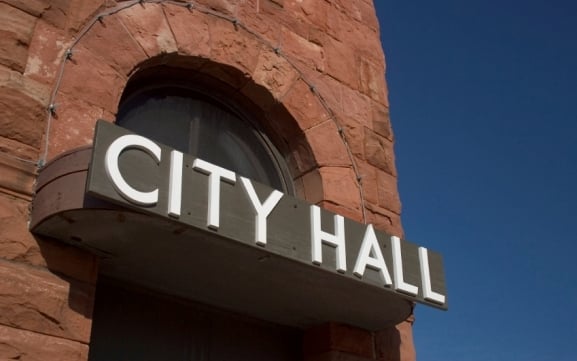Knock-on effect of hiked borrowing costs would force municipalities to raise other levies; robbing Peter
In the category of protecting one's ox from being gored in the testy fiscal cliff debate, you have to give credit to the municipal bond market.
While nothing is close to certain at this point, the tax-exempt status of the nearly $4 trillion muni bond market is definitely on the table as a potential source of new revenue for the government.
That threat triggered swift action from an expansive and eclectic universe of muni bond constituents and fans, leading to the establishment in October of the Municipal Bonds for America coalition. “Some people in Washington seem to think the tax exemption for municipal bonds is inefficient,” said Mike Nicholas, chief executive of the Bond Dealers of America, a member of the coalition.
At its core, and according to the description and mission statement posted on its website, Municipal Bonds for America is a lobbying group, describing itself as “nonpartisan.”
Members range from Columbia, S.C., mayor Steve Benjamin to Piper Jaffray Cos. managing director Frank Fairman. Some of the supporting organizations are Chicago's Regional Transportation Authority, the National School Boards Association and the Texas Association of Local Housing Finance Agencies.
The basic strategy to try to maintain the 100-year run of tax-exempt muni bond income begins with some basic math that coalition members hope Congress will grasp.
“Cutting the exemption is not really saving any money; it's just pushing the expenses down to state and local taxpayers,” said Russ Truell, chief financial officer for Franklin, Tenn., and a member of the coalition's executive committee.
Mr. Truell said the immediate reaction to taxing muni bond income would be an increased cost of borrowing at the state and local levels because bond issuers suddenly would be competing with the taxable-bond market.
In Franklin, for example, he said the ripple effect of higher borrowing costs would translate to a property tax increase of about 12%.
“I would think logic would prevail,” he said. “But Washington right now sees this as the low-hanging fruit, and I just don't know what they will do when they're pressed to the wall.”
Mr. Nicholas said part of the coalition's strategy is to educate lawmakers on how taxing muni bond income would alter the dynamics of the entire muni market.
“If you tax the income, you will discourage investment in muni bonds,” he said. “If you make them taxable, you're turning them into a rate product, and then there's less demand and the borrowing costs go up, and that affects everybody, not just the wealthy.”
In terms of articulating that message to Congress and President Obama, Mr. Nicholas warned: “They're not looking at it from a common-sense perspective.”
“There's a number they're trying to get to, and that's what they're focusing on,” he added. “And there's not as much knowledge of fixed income on Capital Hill as you would think.”







